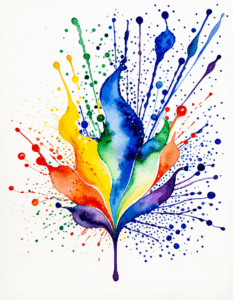Promoting empathy for addicts is a mission close to our hearts at Mothers Against Addiction. When we understand life through the eyes of those battling addiction, we can genuinely connect and support them. This nonprofit helps parents of children struggling with addiction or grieving the loss of a child to addiction directly and meaningfully. Today, we’ll dismantle misconceptions, explore psychological struggles, recognize societal impacts, and highlight family and recovery stories to foster a compassionate, understanding community.
Understanding Addiction: More Than a Choice
Promoting empathy for addicts starts with dispelling the myth that addiction is merely a series of poor choices or moral failings. Time and again, people mistakenly assume that those struggling with addiction lack willpower or moral fiber. The research Addressing discrimination in recovery by the National Institute on Drug Abuse (NIDA) paints a different picture. Addiction is a complex disease that fundamentally alters brain chemistry and functions.
Consider Robert Downey jr ., who has spoken openly about his battle with addiction and subsequent recovery. His story is a beacon for those facing similar challenges, illustrating that addiction can affect anyone, regardless of their background or successes. Through such powerful narratives, we can begin to break down the stigma enveloping addiction and promote greater empathy and understanding.
The Psychological Turmoil: What Addicts Go Through
To genuinely help addicts, we must delve into the psychological turmoil they endure. Addiction often coexists with mental health issues such as depression, anxiety, or unresolved trauma. Russell Brand, in his memoir “Recovery, recounts how childhood trauma and personal insecurities exacerbated his substance abuse. This intersection of mental health and addiction is not uncommon.
Understanding this correlation is crucial. Many individuals turn to substances in an attempt to self-medicate, trying to numb persistent psychological pain. Promoting empathy for addicts means recognizing these profound struggles and advocating for comprehensive treatment that addresses both substance abuse and mental health issues.
| Key Strategy | Description | Benefits | Example Activities |
| Perspective-Taking | Understand addiction by seeing life through the addict’s eyes. | Develops deeper emotional connection and reduces stigma. | Conversations with peers from treatment centers about their experiences. |
| Empathetic Listening | Listen actively and supportively to the addict’s experiences. | Builds trust and encourages addicts to share their feelings. | One-on-one sessions where you practice empathetic listening. |
| Role-Playing | Use role-playing exercises to simulate the addict’s experiences and emotions. | Enhances understanding, awareness, and empathy for what addicts are going through. | Conducting role plays with clients to feel what it’s like to be in their situation. |
| Education Programs | Educate oneself and others about the complexities of addiction. | Increases awareness and reduces misconceptions about addiction. | Workshops, seminars, and reading relevant literature on addiction issues. |
| Support Groups | Participate in or facilitate support groups for addicts and their families. | Provides a safe space to share experiences and receive emotional support. | Join or start a local or virtual support group for families affected by addiction. |
| Empathy Training Courses | Attend courses or training dedicated to developing empathy towards addicts. | Structured environment to learn and practice empathy-building skills. | Enroll in online or in-person empathy training workshops. |
| Peer Mentoring Programs | Engage in mentorship programs where recovering addicts mentor those still struggling. | Provides mutual support, reduces isolation, and boosts confidence for both mentor and mentee. | Connect with local treatment centers to find or become a peer mentor. |
| Community Outreach | Raise community awareness and support for addicts through outreach and advocacy work. | Builds a supportive community network and reduces stigma associated with addiction. | Organize community events and awareness campaigns about addiction and its effects. |
| Trauma-Informed Care | Approach addiction treatment and interaction with a focus on the trauma that may fuel it. | Addresses the root causes of addiction, leading to more effective and compassionate care. | Training in trauma-informed care practices for healthcare providers and counselors. |
Societal Impact: Shifting Perceptions and Responsibilities
Society plays a significant role in how we perceive and handle addiction. Economic hardships, cultural stigmas, and societal pressures often compound the struggle of those with addiction. Vancouver’s forward-thinking approach, including supervised injection sites and harm reduction strategies, offers a compassionate solution that starkly contrasts the punitive models prevalent in many areas.
Promoting empathy for addicts mandates that we shift our perceptions and responsibilities. We should support policies that prioritize treatment and harm reduction over punishment. By doing so, we create a more inclusive, supportive society that recognizes addiction as a public health issue rather than a moral failing.
Family Dynamics: The Ripple Effect of Addiction
Addiction’s impact extends beyond the individual, deeply affecting their families as well. According to the Substance Abuse And Mental health services administration ( Samhsa ), family members often experience immense emotional and psychological distress. Al-Anon’s stories highlight the struggles faced by families of alcoholics—spouses, children, and extended family all cope with the chaos and pain that addiction brings into their lives.
To truly promote empathy for addicts, we must also support their families. Therapy, support groups, and open communication are vital tools for families grappling with a loved one’s addiction. By understanding the familial impact, we can provide holistic support that considers the broader context of addiction.
Pathways to Recovery: Success Stories and Challenges
Promoting empathy for addicts involves heralding recovery stories that showcase resilience and determination. Singer Demi Lovato openly discusses her battles with addiction and her ongoing journey towards recovery. Her story, like many others, is a testament to the strength required to overcome addiction and the critical importance of accessible, comprehensive treatment options.
Facilities like the Betty Ford Clinic exemplify the multifaceted approaches needed for effective recovery. They offer a blend of therapies, peer support, and medical treatments tailored to address the unique needs of each individual. Recognizing and celebrating these recovery pathways is essential in promoting a supportive environment for addicts and their families.
Innovation in Treatment: New Frontiers in Combating Addiction
The landscape of addiction treatment is continuously evolving, driven by advancements and innovations. Telehealth services, like those provided by Monument or Virtual recovery, have made addiction treatment more accessible and personalized, especially during the pandemic. Emerging treatments, such as psychedelic-assisted therapy researched by Johns Hopkins University, offer promising avenues for addressing addiction.
Promoting empathy for addicts means valuing these new frontiers in treatment. By embracing these innovations, we can enhance our support systems, making recovery achievable for more individuals.
Voices of the Unseen: Giving Addicts a Platform
To foster empathy, it’s crucial to amplify the voices of those who have lived with addiction. Platforms like “ Humans Of New york ” have successfully showcased the humanity of people struggling with addiction, fostering deeper connections and understanding.
By creating spaces where addicts can share their experiences without fear of judgment, such as the podcast “Armchair Expert,” we begin to dismantle harmful stereotypes and prejudices. Promoting empathy for addicts involves listening to these voices, valuing their truths, and advocating for a societal shift towards compassion and support.
A Call to Action: Cultivating Empathy in Our Communities
Promoting empathy for addicts demands concerted efforts from everyone—individuals, communities, and policymakers alike. Education, compassionate treatment options, and systemic change are critical instruments in transforming the narrative around addiction. Engaging personally, whether through volunteering, supporting harm reduction strategies, or practicing empathetic listening, can make a profound difference.
Promoting empathy for addicts through these collective acts fosters a more inclusive, supportive society. Together, we can shift perceptions, challenge stigmas, and create a community where understanding and compassion reign, offering hope and healing to those impacted by addiction.
Remember, empathy starts with understanding. By seeing life through the eyes of addicts and their families, we can build stronger, more compassionate communities. Visit Mothers Against Addiction to learn how you can contribute to this vital cause.
Promoting Empathy for Addicts
In understanding addiction, promoting empathy for addicts can open eyes and hearts, leading to more supportive communities.
Surprising Facts About Addiction
Did you know Dr. Vincent Dole and his team discovered methadone as a treatment for heroin addiction in the 1960s? His discovery laid the groundwork for opioid substitution therapy, which has saved countless lives. When you hear about people struggling with addiction, it’s easy to overlook that they’re often fighting a biological battle. Medical treatments like methadone can be crucial in empowering people in recovery, providing a stepping stone to regain control.
The Role of Empathy
Empathy can be a game-changer in transforming perceptions of addiction. Studies show that people who receive support are more likely to overcome addiction. Many people don’t realize that addiction is often tied to trauma and mental health issues. Although it sounds surprising, the brain’s chemistry changes when addiction takes hold, making it as much a medical condition as any physical ailment.
Trivia Tidbits
Interestingly, rats that are given ample social opportunities in “Rat Park” experiments chose non-drug-enriched environments over drug-laden ones. This underlines the necessity of a supportive community, strengthening the case for building empathetic networks around addicts to aid in their empowering people in recovery. Social connections and a strong support network can play a pivotal role in someone’s journey to sobriety.
Promoting empathy for addicts can tangibly change lives. Keep these nuggets of knowledge in mind next time you encounter someone battling addiction. There’s more than meets the eye, and a little understanding can go a long way in fostering recovery and hope.

Why is empathy important in recovery?
Empathy matters in recovery because it helps people feel understood and less alone, which can make the tough journey a bit easier. Knowing others get what you’re going through can be a huge boost.
What 4 steps can you take to increase your empathy?
To boost empathy, start by seeing life from others’ perspectives. Engage in conversations with peers about their experiences, offer support, and practice listening with empathy. You can also practice role-playing scenarios to get a better sense of their feelings.
How do you help someone show empathy?
To help someone show empathy, encourage them to listen more and really try to understand the other person’s emotions. Simple things like maintaining eye contact, nodding, and responding thoughtfully can make a big difference.
How do you build empathy in therapy?
Role-playing in therapy can be a great way to build empathy. It allows clients to express their feelings and helps counselors understand their perspectives better, fostering a deeper connection and awareness.
What is the role of empathy in healing?
Empathy plays a big part in healing by making people feel valued and understood. When someone feels genuinely heard and cared for, it can significantly boost their emotional and mental recovery.
Why is self compassion important in addiction recovery?
Self-compassion is crucial in addiction recovery because it helps people forgive themselves for past mistakes and move forward without the burden of guilt and shame, which can otherwise hinder progress.
What are the 4 A’s of empathy?
The 4 A’s of empathy are: Acknowledge what someone else is feeling, Appreciate their experience, Accept their emotions without judgment, and Act in a way that shows you care.
What are the 7 keys of empathy?
The 7 keys of empathy include emotional sharing, perspective-taking, non-judgmental understanding, acceptance, emotional regulation, staying motivated to connect, and providing compassionate action.
How do you fix lack of empathy?
Lack of empathy can be tackled by encouraging open conversations and helping people see things from different perspectives. Role playing, as mentioned, can also play an essential role.
How do you trigger empathy?
Empathy can be triggered by really paying attention to someone’s story and imagining yourself in their shoes. Listening actively and showing genuine interest can spark those empathetic feelings.
What should you not do while empathizing?
While empathizing, avoid jumping to conclusions or offering unsolicited advice. Just listen and validate their feelings without trying to fix things right away.
How do you teach someone to feel empathy?
To teach someone to feel empathy, provide opportunities for them to practice active listening and really see things from another’s point of view. Encouraging reflection on how others might feel in certain situations can also help.
What blocks empathy in counselling?
Empathy in counseling can be blocked by personal biases, lack of self-awareness, or emotional fatigue. Counselors need to be aware of these barriers and work on overcoming them.
What encourages empathy?
Empathy is encouraged by creating a supportive and open environment where individuals feel safe to share their emotions without judgment. Genuine caring and consistent, compassionate behavior can also foster empathy.
Can empathy be taught or learned?
Empathy can be taught and learned through various exercises such as role-playing, storytelling, and guided conversations that focus on understanding others’ perspectives and feelings.
Why is empathy important in therapy?
In therapy, empathy is important because it helps build a strong therapeutic relationship. Clients feel more comfortable and understood, which can make them more willing to open up and engage in the process.
Why is empathy important for patients?
For patients, empathy is key because it can make them feel seen and respected, which is vital for their overall emotional and psychological well-being.
Why is it so important to have empathy?
Empathy is crucial because it fosters connection, understanding, and a supportive environment. It can help people navigate their feelings and experiences more effectively.
Why are emotions important in recovery?
Emotions matter in recovery because they fuel the motivation to change and sustain progress. Addressing emotions can uncover the underlying issues contributing to addiction and help in finding healthier coping mechanisms.




























